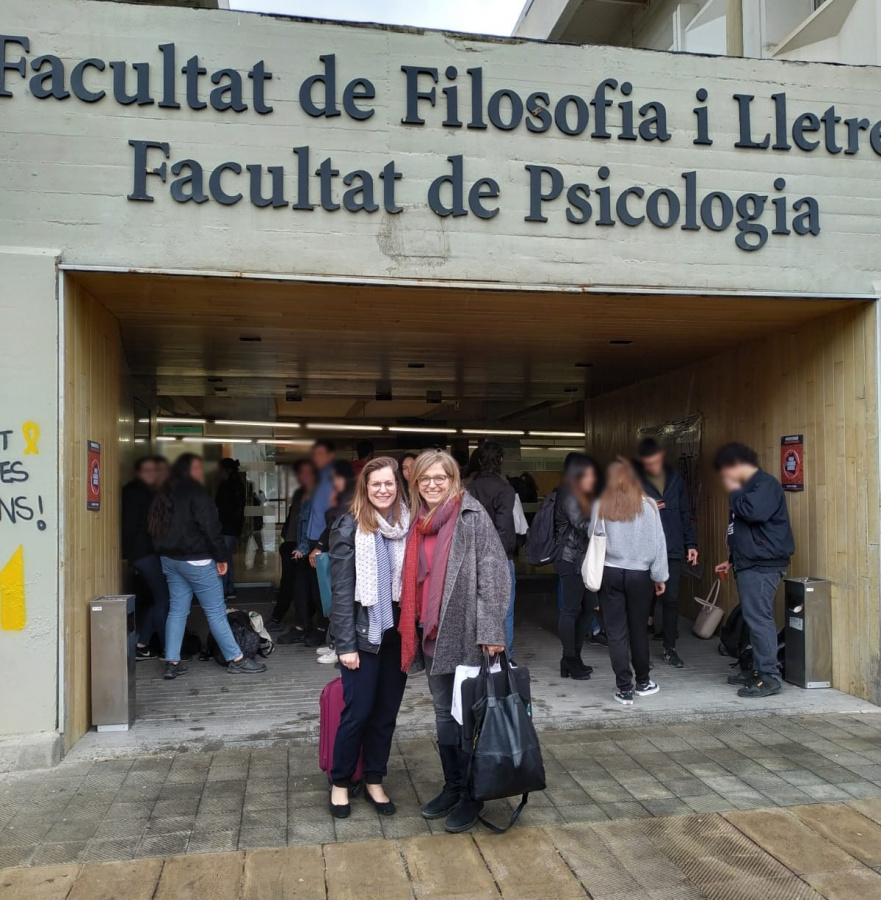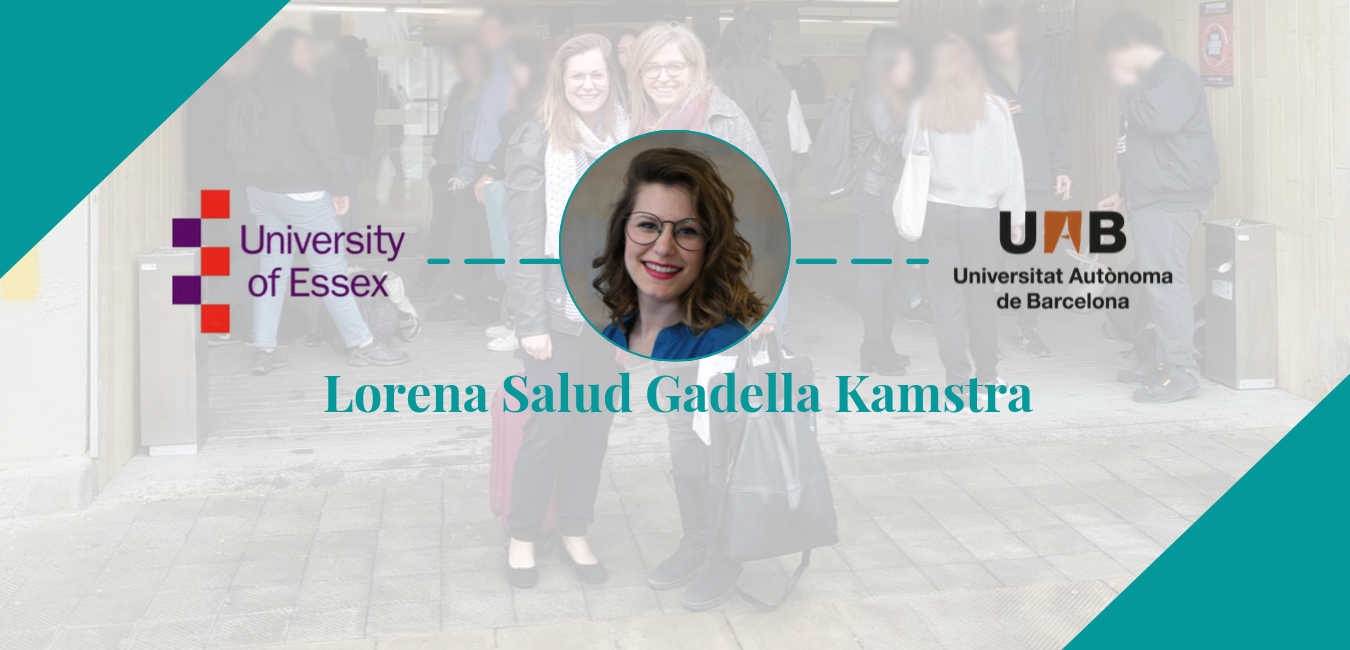I am doing a PhD in English Language Teaching at the University of Essex in the Department of Language and Linguistics and a collaboration was made with the Departament de Filologia Anglesa i de Germanística of the Universitat Autònoma de Barcelona (UAB). I was invited to take part in the Research Group EFLIC (English as a Foreign Language in Instructed Contexts).
EFLIC is a consolidated research group interested in the acquisition of English as a foreign language in instruction contexts and within different educational stages: primary, secondary and higher education. The coordinator of the Research Group EFLIC, Dr Elisabet Pladevall Ballester, was always committed to organize events and activities to benefit both me and the receiving department, increasing collaboration among the two institutions involved. Several activities were programmed for my mobility from 1st to 5th of April.

I was welcomed in the department on the 1st of April and encouraged to visit the library and other facilities in the institution. The second day, I delivered an NVivo workshop for postgraduate students and professors and I also arranged for some support hours or consulting sessions to answer any questions undergraduate and postgraduate students could have about studying abroad or about their/my research. The following day, I presented my research in the Research Group EFLIC, along with other researchers. On the 4th of April, I presented my research for MA students. This presentation was also open to students from the Department of Education. Finally, on Friday 5th April, I presented and delivered a workshop on the topic of motivation for undergraduate students.
Further to presenting my research, I had the chance to network with members of the department with a view to possible future collaborations. I also met other postgraduate students who were working on fascinating topics and were able to give me interesting insights into my research. The host institution was very welcoming, I received a welcome pack and a postgraduate student card, as a visiting researcher. I was given access to areas where I could work and to certain classes and rooms where I could help other students or deliver workshops. With my student card, I could also use books from the library, thanks to which I was able to search for relevant literature related to the field of study. This fostered my accessibility to other resources and new publications which are not available at my home university.
My research area focuses on second language teacher motivation in Spain. Thus, visiting a university located in the country of study and sharing findings with its students and members of staff, who may have learned or taught English as a foreign language (EFL) in Spain, was tremendously beneficial, not only because of their contributions and insights on their teaching and learning experiences, but also due to their feedback on the findings as knowledgeable audience in the context of study. I presented my research several times with different types of audience and received detailed feedback from other research students, staff members and potential future teachers (undergraduate students). These new perspectives added to the research findings and getting to know others’ work and different ways of approaching and interpreting the data was a valuable experience. I certainly benefitted from the insights of an audience with a more critical and informed view on the educational system in Spain.
Lorena S. Gadella Kamstra is a third-year PhD student at the University of Essex funded (only fees) by the Economic and Social Research Council (ESRC). She has assisted in delivering a Teaching English as a Foreign Language (TEFL) module to undergraduate students for three academic terms. She also teaches Spanish to undergraduate and postgraduate students at the University of Essex. She has recently been awarded Fellowship by the Higher Education Academy. Her research title is “Motivation of EFL Teachers: Analysis of Educators’ (De)Motivation and Awareness”. This project was held in secondary state schools in Spain supported by classroom observations and in-depth interviews. Motivators, demotivators and suggestions for improvement were identified based on participants’ direct and indirect contributions and the researcher’s thorough analysis of the qualitative data obtained.










